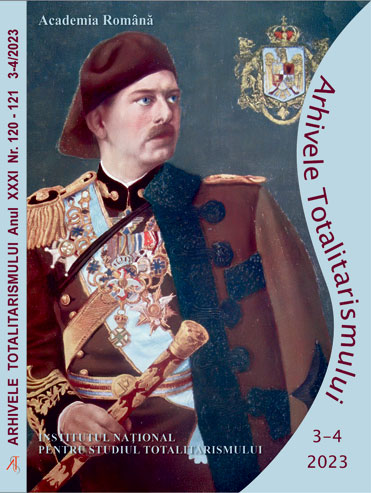Carol Király
(1930-2021)
Carol Király
(1930-2021)
Author(s): Ana-Maria CătănuşSubject(s): History, Political history, Recent History (1900 till today), Special Historiographies:, Interwar Period (1920 - 1939), WW II and following years (1940 - 1949), Post-War period (1950 - 1989), History of Communism, Cold-War History
Published by: Institutul National pentru Studiul Totalitarismului
Keywords: Carol Király (Király Károly); communism; R.C.P.; samizdat; ethnic Hungarians;
Summary/Abstract: Carol Király (Király Károly) was born on 26 September 1930 in Târnăveni, Mureș County, into a Hungarian family. He attended four primary classes between 1939 and 1943, after which he worked as a construction worker in various construction sites in Luduș, Cluj region. In April 1946, Carol Király volunteered at the Salva-Vișeu construction site, and in 1949, he went to the Danube-Black Sea Canal construction site, where he also worked as a carpenter. He attended evening party courses. In October 1954, he was accepted as a member of the Communist Party, but remained a U.T.M. activist. In September 1956, he was sent to attend the Central School of the Moscow Comsomol for a year. After graduation in August 1957, he was appointed first secretary of the regional U.T.M. committee of the Hungarian Autonomous Region. His real rise began after Nicolae Ceausescu came to power. He became a member of the Council of State and afterwards member of the CC of the Communist Party of Romania and substitute member of the Executive Committee. On 1 April 1972 he sent a letter to the party leadership announcing that he was resigning as First Secretary of Covasna County and alternate member of the Executive Committee. In 1973, he was appointed president of the Union of Craft Cooperatives in Mureș County. In 1975 he ceased to be a member of the State Council. In the late 1970s and 1980s, he was an exponent of the rights of the Hungarian minority in Romania, publicly denouncing their violation through open letters to the state leadership, interviews and material published abroad. In the context of the 1989 revolution, Carol Kiraly was co-opted into the country’s new leadership. He died on 4 November 2021.
Journal: Arhivele Totalitarismului
- Issue Year: XXXI/2023
- Issue No: 3-4
- Page Range: 241-245
- Page Count: 5
- Language: Romanian
- Content File-PDF

